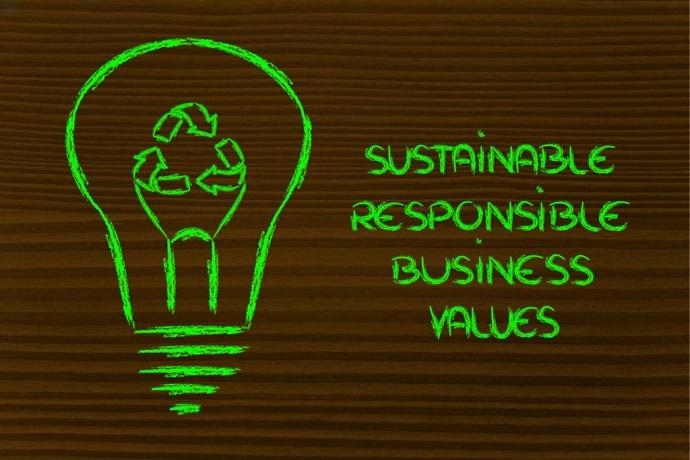A corporate sustainability plan enables a business to lessen its environmental damage, realise financial savings, appeal to eco-conscious consumers and recruit purpose-led employees. Integrating sustainability is not just socially responsible, but strategically vital for competitiveness today.
What is a corporate sustainability plan?
Corporate sustainability is a strategy to deliver goods or services in a way that’s both financially profitable and environmentally friendly. A corporate sustainability plan is the strategic plan that lays out a company's environmental and social goals and the policies and actions needed to achieve them. It provides a roadmap for how a business will operate sustainably across its functions.
An effective sustainability plan should contain:
- Baseline assessments: Evaluate current energy, water use, carbon emissions, waste generation, etc. This provides data to measure progress.
- Targets: Set specific, measurable goals for improving sustainability KPIs over a set timeframe, like reducing greenhouse gas emissions by 25% within 5 years.
- Initiatives: Detail programmes and investments to hit targets such as energy efficiency retrofits, renewable energy projects, sustainable procurement policies and waste reduction processes.
- Governance: Assign oversight roles like a sustainability director and tie sustainability metrics to executive pay.
- Communications: Have a strategy to update stakeholders on sustainability commitments and progress through reporting and marketing.
- Innovation: Encourage company-wide input on sustainability improvements and green product development.
A comprehensive corporate sustainability plan integrates sustainability into all business units and operations. It requires initial investments in many cases but provides long-term savings and competitive advantages that will boost your business’ success. There are many benefits for business including those which follow.
Saving money
Sustainability initiatives reveal opportunities for greater cost savings throughout an organisation's operations. Efforts to enhance energy efficiency, conserve water and reduce waste inherently cut costs and boost the bottom line.
For example, one of the major benefits of installing solar panels on business premises is the cost-saving measures they provide for utility bills. Waste reduction and recycling programmes also lower expenses related to refuse collection. Sustainability plans also allow companies to identify long-term cost savings that come from upgrades like installing LED lighting, automated building controls and other systems that require upfront investment but deliver ongoing savings.
Reducing environmental impact
Sustainability plans enable businesses to measure and reduce their use of resources like energy, water and raw materials. By tracking consumption and setting targets for reduction, companies can cut back on their ecological footprints and develop a sustainable work space. Sustainability plans may contain specific goals around reducing carbon emissions, minimising waste and cutting back on plastic use, or they might suggest alternative materials that can be used for the environment. Companies can work towards these targets through initiatives like renewable energy projects, recycling programmes and waste-reduction procedures.
Attracting customers
Today's customers increasingly support brands that align with their values, like environmental sustainability. Having a clear sustainability plan allows companies to market their eco-friendly practices and products in such a way as to appeal to and connect with green-conscious consumers. Brands like Patagonia have cultivated loyal customer bases largely thanks to their strong sustainability commitments.
There’s a risk of greenwashing in industries today, but showcasing your sustainability plan shows that you’re true to your word. By promoting sustainability initiatives on packaging and through advertising, companies can attract new customers who care about social responsibility and minimising environmental harm from the products they buy.
Recruiting and retaining talent
Sustainability plans help businesses stand out and attract purpose-driven talent, especially younger workers who want to work for companies that reflect their environmental values. Ethics and values are so important to employees today, and people want to work for businesses that are making a positive change.
Employees also feel greater pride working for organisations with meaningful sustainability goals that contribute to larger global causes. This gives businesses an advantage in not just recruiting, but also retaining top talent within their industry. Employees are more likely to stay at companies where they feel connected to a larger purpose beyond profits, which saves businesses money in the long-term with regards to recruitment costs.
Managing risk
A strong corporate sustainability plan helps businesses effectively identify and manage risks. By assessing operations through an environmental, social and governance (ESG) lens, companies can pinpoint areas of potential reputational, regulatory, and financial risk both today and in the future. For example, dependence on scarce resources like water makes companies vulnerable to supply chain disruption. Lack of emissions reduction goals opens them up to shifting government regulations. Maintaining unsafe or unethical working conditions represents a tremendous reputational liability.
An effective sustainability plan manages these risks by setting policies and targets to reduce environmental impacts, create responsible supply chains, and ensure worker health and safety. Sustainability planning equips businesses to mitigate and adapt to emerging ESG-related risks in a rapidly changing world. Taking proactive sustainability measures allows companies to maintain continuity, protect their reputations and build resilience over the long-term.
Prioritising corporate sustainability is fundamental in today's dynamic business environment. By doing so, companies not only champion environmental care but also harness economic advantages and resonate with a growing eco-aware audience. Though it demands an initial outlay, the long-term rewards span from increased efficiency to a positive brand reputation, attracting individuals who share the company's vision.
Those who proactively integrate sustainability are priming themselves for enduring success and playing a pivotal role in steering our society to a greener, more conscientious tomorrow. The push for sustainable practices is evident, and businesses stand to gain both ethically and economically by heeding this call.

